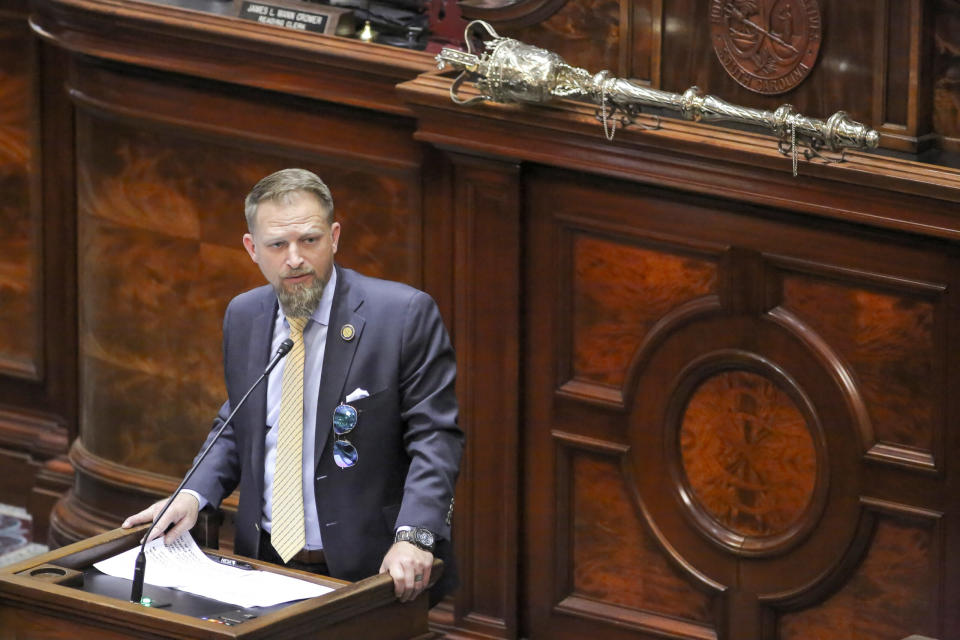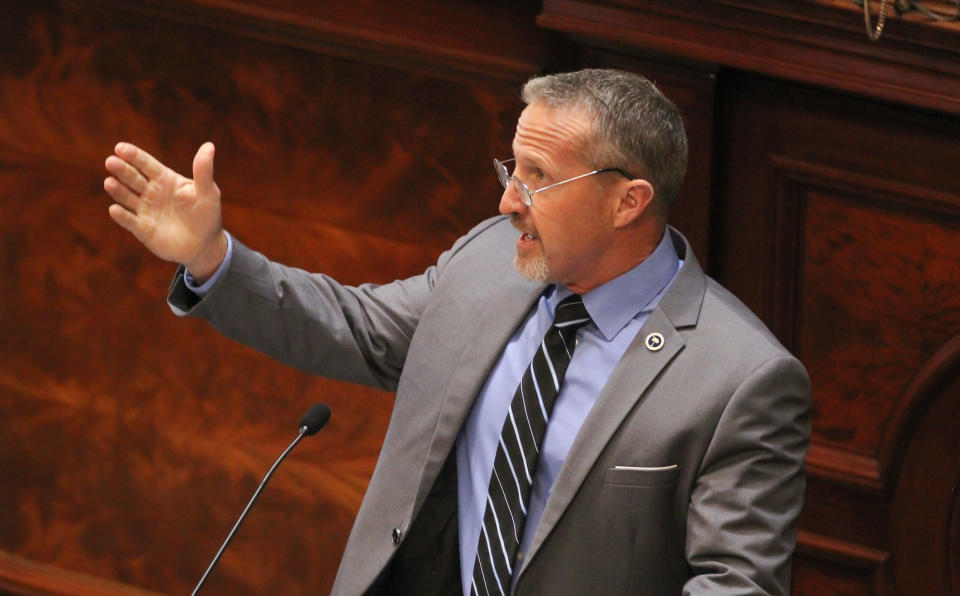SC stands alone in not criminalizing ‘revenge porn.’ Some legislators hope to change that.

In this photo illustration, social media apps are seen on a mobile phone. (Photo by Chris McGrath/Getty Images)
COLUMBIA — South Carolina became the only state in the country that doesn’t ban distributing nude photos of someone without permission after a law making it illegal in Massachusetts took effect last month.
South Carolina does have a law banning sexual extortion, often called “sextortion,” which is when someone uses sexual photos or videos to blackmail people. The sextortion law, which passed unanimously last year, is named Gavin’s Law after Rep. Brandon Guffey’s 17-year-old son, who died by suicide after scammers posing as a college girl threatened to release explicit photos of him unless he kept sending them money.

That law covers instances in which a person demands something, usually money and/or sex, in order to not release nude photos. But nothing in state law deals with situations in which a person posts or sends such photos without first using them as blackmail, Guffey said.
“There is nothing to stop someone from releasing something without the threat,” the Rock Hill Republican said.
For instance, a man angry following a breakup might decide to share or sell nude photos his girlfriend sent him while they were in a relationship, said Rep. Chris Wooten, who sponsored a bill last session making that illegal.
That’s where the “revenge” piece of what’s been dubbed “revenge porn” comes in, as it’s often done to embarrass someone or hurt their reputation, he said.
The sharing of explicit images without consent can also lead to human trafficking, when the person circulating the photos uses them as leverage against the person in them. Still, without a threat before the images are circulated, that’s not illegal under the existing sextortion law, Wooten said.
“We’re trying to work with law enforcement and give them another tool in the toolbox to work on the things we’re running into these days,” said the Lexington County Republican, a Marine veteran and former highway trooper.
The state needs a law to protect people, especially young adults, from having their lives ruined because they sent an explicit image to someone they thought they could trust, he said.
“Everyone makes mistakes,” Wooten said. “That shouldn’t be held over their head.”

His bill, pre-filed in December 2022 and co-sponsored by Guffey and five other Republicans, never even got a subcommittee hearing over the last two years. It officially died when the legislative session ended in May.
That bill joined a long line of similar proposals introduced since 2016 that met the same fate. Other bills referred to it as cyber sexual harassment. None have made it out of the committee process.
That’s not because of opposition, Wooten and Guffey said. Both said they haven’t gotten any pushback on the idea.
Instead, it’s a matter of legislators not understanding the problem, Wooten said. He didn’t know what “revenge porn” was until he joined a committee that looked at the issue, he said.
Only after working with the Attorney General’s Office and realizing that law enforcement had no way of prosecuting people who spread those images without consent did he start pushing for legislation, he said.
“A lot of people aren’t aware of it,” Wooten said. “A lot of people don’t make a big deal out of it.”
Part of that may come from an older generation of legislators who don’t understand image-based abuse and the harm it causes, Guffey said.
“They just had to worry about a Polaroid (photo) getting passed around,” Guffey said. “They view it as more of a self-caused situation.”
As younger legislators come into the Statehouse, that mindset is shifting, Guffey said.
The biggest question at this point, he added, is what kind of penalty to attach to the law. Guffey said he’d be fine with civil litigation, meaning the person whose images were circulated could sue the one who distributed the photos.
Wooten said he prefers criminal punishments like other states have used. His latest attempt would have made the “unlawful dissemination of sexually explicit materials” a misdemeanor, punishable by a fine of up to $1,000 or a prison sentence of up to a year.
Under the new Massachusetts’ law, a person who distributes nude or partially nude photos without the consent of the person in them could face up to two and a half years in prison, a $10,000 fine, or both.
Wooten plans to reintroduce his bill ahead of the legislative session that begins in January. He and Guffey are both hopeful 2025 will be the year it becomes law.
“It should just be a layup for this Legislature to get something on the books,” Guffey said.
GET THE MORNING HEADLINES DELIVERED TO YOUR INBOX
Let us know what you think...
The post SC stands alone in not criminalizing ‘revenge porn.’ Some legislators hope to change that. appeared first on SC Daily Gazette.

